








Stephen Stringer joined Fairhive as Chair of the Parent Board in 2016. During his career as a Government advisor he worked in the housing and regeneration sectors as well as being responsible for the governance and oversight of a range of Government Associations. His board experience includes roles as Chair of Islington and Shoreditch Housing Association and member of the Metropolitan Support Trust.
Susan was appointed to the Board in 2019 and serves as Vice Chair of the Board and Chair of the Audit & Risk Committee. She is a Chartered Accountant and has been in senior management for 25 years. Sue currently lives in Oxford working as a Consultant, a Coach and is also on the Board of a charitable foundation.

Angela and her family moved to Aylesbury in 1995 and in 2013 Angela became a local Member of the Buckinghamshire County Council. In 2020, Angela was elected onto the new unitary council as Deputy Leader and Cabinet Member Adult Social Care. Resigned from the Board May 2025.

Barbara Richardson
Barbara has worked in the housing and property sector since 1995 at Senior Director and board level and has extensive experience in site identification, land acquisition, planning, project management and sales, property services, and strategic asset management. Barbara is Chair of both subsidiary Association boards.


David is an Independent Housing Consultant, specialising in affordable housing development and asset management. From 2000, David held the roles of Executive Director of Development, and latterly Chief Operating Officer, at Bedfordshire Pilgrims Housing Association, and more recently Executive Director of Development and Sales at Cross Keys Homes. David has served on several Housing Association Boards in London and the Homes Counties. He chairs Development & Assets Committee.
Olivia was appointed to the Fairhive Board in 2017. Her early career was spent with the Environment Agency which subsequently led to roles in related areas in both the public and private sector. Her current role is as Director of Strategy & Partnership, Oxford University Hospitals, NHS Foundation Trust. She has served as a housing association board member for over ten years.

Kelly joined the board originally as a resident member in 2017, although now serves as an Independent Member. She has worked in accountancy firms since 1994 and is an Association Director and an Associate Member of the Chartered Institute of Credit Management. Kelly has lived in Aylesbury Vale for 20 years. Kelly chairs Remuneration and Selection Committee.

Dr. Adekunle Osibogun is a Council Board Member, appointed to the Fairhive Board January 2023. He is a dual qualified lawyer and an arbitrator, with experience in dispute avoidance and complex disputes. He brings a wealth of knowledge as a corporate lawyer and dispute resolution expert with over fifteen years’ experience, and expertise in commercial disputes.

Sue was appointed to the Board in 2022. She is a Chartered Surveyor with a wealth of experience in both private and public sectors. As well as being a surveyor, Sue is a Law graduate and a RICS Evaluative Mediator.

Matt McGeehan
Matt was appointed to the Fairhive Board in January 2023, having previously served as a member of the Buckinghamshire Housing Association Board. Matt is a retired chartered accountant, who worked with accounting firms in the UK and abroad, followed by a career as a finance professional in industry.
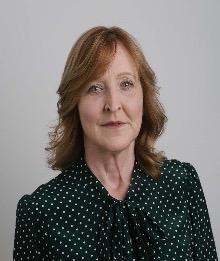
Julie is a qualified accountant and a member of the Chartered Institute of Housing and was appointed to the Fairhive Board in April 2025. She has extensive experience in the social housing sector and is currently Chief Executive at Advance, where she has strived to ensure the provision of good quality housing solutions and services that are tailored to the needs of individuals.

Jesse has 15 years’ experience working in the housing sector and was appointed to the Fairhive Board in April 2025. He has been Chair of the National Housing Federation’s Small Housing Association Network, representing providers nationally in forums with the Regulator and Housing Ombudsman.



Matthew Applegate Chief Executive
Matthew Applegate has been Chief Executive of the Association since its formation in 2006. He has worked within the housing sector for around 30 years and previously held a variety of senior executive roles, non-executive Board member and Committee Chair roles at other Housing Associations. He is a member of the Chartered Institute of Housing and is also a qualified accountant.
Dean Gill joined the Association in 2010 and leads a number of teams in the Operations directorate. Dean has over 30 years of experience working with Housing Associations, Local Authorities, ALMOs and a number of related private sector businesses. Dean began his career as an apprentice Carpenter and Joiner before progressing into surveying and then management roles.
Julie Porter joined the Association in 2020 to lead our programme of developing new homes. She has worked in housing development in a number of roles for over 20 years, starting as a graduate trainee with a private housebuilder and going on to work for a number of regional and national housing associations, leading a wide range of teams including new business, asset management, planned maintenance, leasehold, sales and marketing, as well as development delivery. She is a Fellow of the Royal Institution of Chartered Surveyors and has a degree in Land Management.


Izabela Falinska joined the Association in 2021 and her responsibilities include finance, treasury, IT and governance. Her focus is to ensure that the Association maintains strong governance and strong financial metrics, with ample potential for growth. Izabela has worked in the housing sector for over 25 years in senior finance roles. Izabela is a Fellow Member of Association of Chartered Certified Accountants.
Jane Rothery joined the Association in 2022, as an interim, becoming permanent in May 2023. She took over as the Company Secretary in September 2023. Jane is also responsible for teams covering governance, performance, procurement and risk & assurance. Jane has a Master’s Degree in Corporate Governance and is a member the Chartered Governance Institute.
Registered office
Registered numbers
@hellofairhive
hellofairhive
@hellofairhive
fairhivehomes
fairhive.co.uk
Auditors
Fairfax House 69 Buckingham Street Aylesbury Buckinghamshire HP20 2NJ
Community Benefit Society Number 8826.
Regulator of Social Housing Number L4473.
Crowe U.K LLP 55 Ludgate Hill London EC4M 7JW
Trowers & Hamlins LLP 3 Bunhill Row
London EC1Y 8YZ
Devonshires
Solicitors LLP First floor No 1 Whitehall Riverside Whitehall Road Leeds LS1 4BN
Barclays Bank Plc Social Housing Team 27th Floor 1 Churchill Place
London E14 5HP
The Board of Fairhive Homes Limited is pleased to present its report together with the audited consolidated financial statements.
Fairhive (‘the Group’) comprises Fairhive Homes Limited (“the Association”) and its subsidiaries Fairfax Housing Limited and Fairfax Design & Build Limited. Fairfax Design & Build Limited started its operations during the financial year ended 31 March 2022 and Fairfax Housing Limited has remained dormant since incorporation.
The Association was formed to receive the transfer of Aylesbury Vale District Council’s housing stock. This transfer took place in July 2006 and at 31 March 2025 the Association managed 8,981 homes (2024: 8,814).
On 9 January 2023 the Association received over 500 well maintained homes via the transfer of engagement from Buckinghamshire
The Association’s principal activities are the management, improvement and development of affordable housing and the provision of housing related services.
The Association operates two key business streams:
• the provision of general needs housing for rent and shared ownership and
• the provision of supported housing for people who need additional support to maintain their independence (Independent Living).
The Association invests in the housing stock to meet a quality standard which exceeds the Decent Homes Standard through an ongoing programme of planned and cyclical works. The Association is also committed to supporting its communities so they can be sustainable in the longer term.

This was the final year of the five-year corporate strategy ‘Bigger, Better, Bolder and Beyond’, launched in July 2020. Details of the Association’s performance in the year are set out on page 21.
The Bigger, Better, Bolder and Beyond strategy is based around the themes of providing more homes for people in housing need, making sure services match the needs of current and future customers, investing in homes and communities, reducing environmental impact, improving sustainability and embracing new opportunities and innovative ideas.
The Association continued to support our
We responded to these unprecedented times by adapting our services and ways of working, reviewing our plans and assessing how we can support our residents and communities. We invested in technology, mobile working and ensured that we put our colleagues and customers’ health and wellbeing first.
The Fairhive Board has now agreed a new Strategy for the next five years: Fairhive 202530 Strategy.
This strategy has been created to both build on the successes of the last five years and to represent Fairhive’s drive and ambition.
The Association’s financial position remained strong and robust.

During the year we continued to work with our residents so they are involved and have their voice heard to increase our accountability, effectiveness and transparency to our residents.
Our Resident Scrutiny Group completed two reviews: Customer Satisfaction Levels (May 2024) and a review of their Independent Task & Finish Scrutiny Process to assess their approach to enquiries and identify potential improvements, supported by Tpas (leading tenant engagement experts).

by 12 residents, giving them confidence and employment skills with the opportunity to gain work experience by volunteering in our involved groups and build further confidence.
We have continued to deliver training to our volunteers including Scrutiny Training and Strategic Thinking to ensure that our involved residents are empowered to influence our services.
Our number of formal group meetings has increased to 56 meetings this year from 32 the previous year. The Resident Policy Review group has been consulted on and reviewed 12 policies in the last year. Our Resident Estate Services group are monitoring cleaning and grounds maintenance contracts, and residents are able to feedback directly to our contractors. The Resident Complaint Review group have reviewed numerous case studies to ensure that complaints are dealt with appropriately, and to provide feedback to staff on handling of complaints. We are also grateful for the support of Kelly Webster, our Board Complaints Champion, who plays a key role in championing transparency and accountability in our complaints process.
The Resident Forum has also updated their Terms of Reference to allow for increased volume and diversity of involved residents, which will in turn support the new strategy and our resident voice objectives.
We ran a resident diabetes session, which was a great collaboration between staff and residents as it was delivered jointly by one resident and one staff member with personal experience of diabetes. We also delivered a First Aid session at one of our Independent Living Schemes.
We continued to support community events such as a summer fun programme aimed at SEND children at the Thomley Centre, Horsewyse horse riding event, a crafts workshop, several plant and pot events across different areas within the community and a family event aimed to engage former Bucks Housing Association residents.
We ran several Resident Drop Ins at different venues providing opportunities to socialise and speak to representatives of different departments including Welfare for advice on benefits and heating bills as well as the Resident Liaison Team to support with Damp and Mould. We completed 3 Nurture your Neighbourhood projects in Independent Living schemes, supporting sustainability and wellbeing of residents.
This year we had 1,111 residents involved in some form of community activity, compared to 942 residents the previous year.
Our Employee Consultative Committee (ECC) has been a long-standing employee engagement tool for us, meeting four times a year plus ad-hoc meetings as required. Our ECC continues to review key employment related policies and changes to the business. Its views are considered and discussed before any actions are taken.
Twice a year, we carry out an employee engagement survey which is key to capturing our employee voice, helping us identify how we can improve our employee experience and wellbeing, as well as key areas of business performance. Other initiatives which reinforce the data from these surveys include senior managers Back-to-the-Floor sessions and Executive Leadership Team (ELT) lunches, where employees have direct contact with senior leaders, sharing what’s going well and having the opportunity to raise any concerns they may have. We also launched a new employee suggestion scheme called “Hive Ideas” in October 2024 to encourage innovative thinking across our business.
Employees are also encouraged to recognise great performance amongst their colleagues by nominating them for a Leading-Edge award. Winners are celebrated across the company via our intranet, Hive Talking and at local team meetings.
We continued with our Talkback partnership, cementing our support for young adults, with autism, to develop their employability skills. Autism is the condition with the lowest employment rate in the UK; only 16% of the autistic population in the UK are employed, despite 77% of the autistic population stating that they want to work.
We have partnered with Talkback for many years and in this time, Talkback has raised awareness about autism in Fairhive, sharing first-hand with our employees what life is like living with autism. Most recently, a young adult who, following work experience with us, was successful in securing a fixed term post and then a permanent post within our IT Support Team. He has already proved to be a great asset; setting up equipment for new users, troubleshooting issues and updating our Service Desk.
This young adult’s mum kindly shared the following feedback with us:
“I truly believe that every young adult needs an opportunity for their future development and especially those that are neurodiverse. With the support provided by Talkback and the fantastic opportunity given by Fairhive, I truly believe that Arjun will prosper and develop into a confident young person.”
We continue our total commitment as a Disability Confident Leader which we were awarded at the beginning of 2023; the highest level possible. Over the last 12 months, our Assistant Director of People has shared our best practice approach with Housing Sector leaders at the National Housing Federation annual Equity, Diversity and Inclusion conference. We also supported the Bucks Skills Hub by writing an article to help empower students with special education needs and disabilities to find employment: https:// bucksskillshub.org/career-seeker/resources/ empowering-send-students
We’re passionate about supporting students and young adults into further education or employment and attending the Bucks Skills Show is a great way that we can continue to support local students taking that next step after GCSEs.
Our Inclusion Networks have gone from strength to strength since their inception in January 2022. We now hold an Inclusion Network event once a quarter on various topics that we feel employees will be interested in or employees request information on. This year we have held a number of Inclusion Networks, raising awareness on topics such as serious allergies and neurodiversity. We are proud that over 100 employees have attended an Inclusion Network.
Over the last seven years reducing our gender pay gap has been a key area of focus for us. We have continued to improve since our first report in 2018, when the gender pay gap stood at 13% compared to the 2024/25 report where our mean gender pay gap has decreased significantly to 5.1%. Our median pay gap of 5.0% compares favourably to the UK median pay gap of 13.1%.
We continue to work collaboratively with our partners, suppliers, Local Authorities and charitable organisations, to ensure residents are provided with support and welfare advice to assist with sustaining their tenancies.
One such partnership we secured last year was with the Shaw Trust, which offers support for residents that may be facing barriers preventing them from applying or obtaining employment.
The Welfare team has been instrumental in helping set up a Community Hub, in High Wycombe, which now offers monthly advice and support for residents.
We secured funding of £81,081 from the Government Household Support Fund to assist pensionable residents, in lower rated EPC properties, with energy vouchers.
We assisted residents to claim the sum of £4,144,100 in unidentified welfare benefits to help sustain their tenancies.
Where we have long-term supply contracts in place, such as with Travis Perkins Managed Services (procured through Pretium), Harmony (procured through EEM), and Robert Heath (procured through ProcurePlus), we establish mutually agreed performance indicators to ensure these partners deliver value for money for our residents. In these arrangements, where possible, we also include social value opportunities which benefit our residents and include monetary contributions from suppliers as well as initiatives such as apprenticeships, work experience placements or CV workshops.
Sponsorship remains an important tool for us to enhance our brand and reputation as well as providing the opportunity to build strategic partner relationships. During this financial year we sponsored the Bucks Skills Show and Confident Skills Show, where we were able to maintain a local presence, support our EDI priorities and raise awareness of our brand.
We continue to work with external partners to deliver our Inclusion Network events where we have covered topics such as serious allergies; neurodiversity awareness and menopause awareness.
We’re continuing to work towards achieving the Social Housing Anti-Racism Pledge (SHARP) Level 1 – Commitment Award later this coming year. SHARP is a movement grounded in a commitment to tackle injustice and inequality.
Our Assistant Director of People also attended the annual EDI Conference hosted by the National Housing Federation. The theme of the conference this year was EDI in Housing – Inclusive Futures: Driving Change Through Diversity. Our Assistant Director of People presented on how we have created an inclusive culture whereby we attract and retain people with disabilities. Our Assistant Director of People also shared some of our best practice from being a Disability Confident Leader centred on how Housing Associations could achieve more for people with disabilities. Feedback on the Assistant Director of People’s presentation was very positive and his contribution reinforced the critical need to keep strengthening the EDI agenda across our sector.
During this financial year we also introduced Partnership Briefings, these are designed to enable more collaborative working across our whole stakeholder base. Our first briefing included an outline of our proposed 20252030 strategy. Bringing together a number of our stakeholders in a space where they could share their thoughts on our future aspirations demonstrated our commitment to partnership working and allowed us to identify opportunities to improve our partnerships for future success. We have further events planned for the new financial year.
As environmental sustainability and EDI are such key deliverables for us we also reinforced links with Lindengate, a local provider mental health services using the power of green spaces and fresh air. Their new Chief Executive was keen to engage with us to explore working together in the future to meet our environmental commitments.
The Board Members are set out on pages 3 to 6. Board Members are drawn from a wide variety of backgrounds bringing together professional, commercial and local ‘lived’ experience. At year-end, the Parent Board comprised: two members nominated by Buckinghamshire Council and eight independent members. Two additional independent members were subsequently appointed to the Board 1st April 2025.
The Executive Directors comprise the Chief Executive and three other members of Executive Leadership Team, as set out on pages 7 to 8.
The Association has liability insurance policies for its Board Members, Company Secretary and Executive Directors when acting for the Association.
The Chief Executive and Executive Directors are employed on essentially the same terms as other employees.
Our Executive Directors are members of the defined benefit scheme with the Social Housing Pension Scheme. They participate in the scheme on the same terms as other eligible employees of that scheme. Fairhive contributes to these schemes on behalf of its employees.
The Executive Directors are entitled to other benefits such as a car allowance and health care plan. Details of the Executive Directors’ remuneration are included in note 11 in the financial statements.

A review of compliance with the regulatory standards of the Regulator of Social Housing (RSH) has been undertaken and the Association complies with the Governance and Financial Viability Standard.
During the year, the RSH reviewed its assessment of the Association’s compliance with the Governance and Viability Standard, including a Stability Check, and in November 2024 confirmed that previous ratings had been ‘assessed and unchanged’ in that the Association has retained the regulator’s top rating for governance; G1 and V2 for viability. The Regulator had previously confirmed that it: “has assurance that Fairhive Homes Limited (Fairhive) continues to comply with the financial viability elements of the Governance and Financial Viability Standard and that its financial plans are consistent with, and support, its financial strategy. Fairhive has an adequately funded business plan, sufficient security, and is forecast to continue to meet its financial covenants.”
Fairhive has not yet undergone a formal regulatory assessment against the Consumer Standards, introduced in 2024, but is working together with our residents to ensure full compliance with their requirements.
As a member of the NHF, the Association has adopted the NHF’s 2020 “Code of governance, Promoting board excellence for housing associations” since 1 April 2022. A Compliance Assessment has been conducted against the 2020 Code in the current financial year which confirmed that the Association complies with the Code.
The 4 main principles of the Code are:
• Mission and values: The Board sets and actively drives the Association’s social purpose, mission, values and ambitions, and through these embeds within the Association resident focus, inclusion, integrity, openness and accountability
• Strategy and delivery: The Board sets the Association’s plans and strategies and exercises demonstrable and effective oversight of their delivery.
• Board effectiveness: The Association is led by a skilled and diverse Board which regularly reviews and capably manages its own performance and effectiveness, and ensures that it complies with this code.
• Control and assurance: The Board actively manages the risks faced by the Association, and obtains robust assurance that controls are effective, and that plans and compliance obligations are being delivered.
During the year, total donations amounted to £16,100 (2024: £4,287). Contributions were made to beneficiaries including the Florence Nightingale Hospice Charity in Aylesbury, Oxford Hospital, and other charitable organisations.
There were no political donations (2024: nil)
This is a dedicated grant fund to enhance the wellbeing of communities within Fairhive’s areas of operation. The fund is distributed through three streams:
• Springboard Grants – Up to £300 to support residents in accessing opportunities related to wellbeing, education, training, or employment.
• Community Micro-Grants – Up to £3,000 to
During the year £228,459 (2024: £230,568) was awarded as follows:
• Springboard Grants: 117 grants awarded totalling £34,740.
• Microgrants: 15 grants awarded totalling £36,417.
• Project Grants: 19 grants awarded totalling £157,302.
As a result of significant reductions in public funding, the demand for our Thriving Communities Fund has reached unprecedented levels.
The grants have been recognised in the Statement of comprehensive income.
This year, all employees were offered half a day to volunteer and many employees engaged in local volunteering activities.

The Board acknowledges its overall responsibility for establishing and maintaining the whole system of internal control and for reviewing its effectiveness.
The system of internal control is designed to manage, rather than eliminate, the risk of failure to achieve business objectives, and to provide reasonable, and not absolute, assurance against material misstatement or loss.
A process for identifying, evaluating and managing the significant risks faced by the Association is ongoing and has been in place throughout the period from 1 April 2024 to the date of approval of this report and financial statements.
Key elements of the control framework include:
• regular reporting to the Board on key business objectives, risks, outcomes vs. performance targets within the Board approved Business Planning, Risk and Control Framework;
• Board approved Governance Framework including terms of reference for Boards and delegated authorities for the Committees: Audit & Risk Committee (ARC) Development & Assets Committee (DAC) and Remuneration & Selection Committee (REMCOM), The Consumer Board Working Group and Task and Finish Groups;
• Health & Safety Working Group meets quarterly and provides assurance to the Board and ELT on Health & Safety risks, their control and mitigation;
• The Budget and Business Plan working groups meet once a year to review the annual budget and business plan in detail and recommend it to the Board;
• The IT Steering Group includes a member of the Audit & Risk Committee and has oversight of the Agile IT Project and the project to procure a new housing system;
• clearly defined management responsibilities for the identification, evaluation and control of significant risks;
• strategic and business planning processes, with detailed financial budgets;
• recruitment, training and development policies for all staff;
• preparation of reports to the Board for approval of significant new initiatives and commitments, highlighting the risks and financial implications;
• a risk-based approach to treasury management, reviewed each year;
• Board approved confidential reporting (whistle blowing) policy;
• Board approved anti-fraud and corruption policy and code of conduct, covering prevention, detection and reporting of fraud; and
• Policies and procedures in place on safeguarding and modern-day slavery.
A fraud register is maintained and is available for review by ARC at each of its meetings. Fraud is a standing item on ARC’s agenda.
The Board accepts ultimate responsibility for the system of internal control and it has delegated authority to ARC to regularly review the effectiveness of the system of internal control. The means by which ARC reviews the effectiveness of the system of internal control include considering internal audit reports, risk management reports, management assurances and the external auditors’ audit findings report.
ARC has received the Chief Executive’s annual review of the effectiveness of the internal controls for the Association, and the annual report of the internal auditor, and has reported its findings to the Board.
The Association’s five-year corporate strategy “Bigger, Better, Bolder and Beyond” covering the period from 2020 to 2025 is designed to help build on prior successes by meeting the needs of our customers now and into the future. The strategy is based around the following themes:
• deliver more homes;
• be a great landlord;
• support our residents and local communities; and
• do more to protect the environment.
We recognise that being adaptable is necessary in today’s world to ensure we are able to meet future challenges; the environment in which we work can change rapidly and the Association seeks to be flexible and introduce new ways for its services to be accessed, engage effectively with its residents and provide more homes across all affordable housing tenures.
Five key objectives were agreed in 2020, which support this strategy:
Increase housing supply for people in need
We are determined to continue to develop more homes for those in housing need at rents which are affordable and shared ownership for those who want to start owning their own home. We aim to expand the area we operate in to help widen our offer and affordability. We will work with partners to facilitate the Group to build houses for sale. In addition, we will reduce our carbon footprint by using sustainable materials and minimising our construction waste. By making the best use of technology, we’ll leave a legacy of well-built homes with great design and style.
Provide services that meet customer needs
Rising customer expectations, together with the digitalisation of services, means our residents want more choice and opportunity to have their say in the way services are run. By listening to, and acting on, resident feedback, we can improve services.
an efficient and effective business
As technology and innovation moves quickly, we continue to update IT systems to provide the flexibility and efficiency that our residents and employees need. The working environment and the expectations of employees and customers are changing. We will meet these challenges by continually reviewing our processes and considering how services are delivered. Strong leadership and management are important to us. We’ll make sure we have people with the right skills and resources in the right place at the right time.
We will make sure that new and existing homes are adapted, where possible, to prevent unnecessary impact on our environment. Working towards reducing our environmental impact and improving our sustainability, we will give preference to partners who are working towards zero carbon, whilst using the most economical construction methods.
We will promote social inclusion and tenancy sustainment and improve estate environments, thereby providing strong, sustainable communities. Working with partners we will provide support to vulnerable residents, helping to reduce social isolation and assisting with independent living. Effective asset management will ensure that we consider low performing properties for sale. The proceeds from these properties will be used to deliver against the Association’s strategic priorities.
A number of projects were set up to deliver the strategic objectives. These included enhancing resident engagement, improving data quality, environmental improvements projects and enhancing residents’ access to online services. The projects are supported by a suite of quantitative and qualitative measures which are monitored quarterly by the Executive Leadership Team (ELT), with updates reported to the Board twice a year.
Fairhive’s new five-year strategy comprises 5 overarching strategic objectives:
• Resident Voice – To ensure that our services are of a high quality and that they are developed and delivered in line with our residents’ needs and expectations.
• Housing Quality – To provide modern, safe and compliant homes that meet our residents’ needs.
• Development and Growth – To provide high quality, sustainable, affordable new homes that meet the needs of our residents.
• Employee Engagement– Embracing new possibilities through our people.
• Environmental – To provide environmentally efficient homes, make a positive environmental impact in our communities and contribute to a sustainable future.
These Objectives are underpinned by a number of strategic aims, detailed measures and corporate projects.
We are committed to providing services that represent value for money (VfM) for residents whilst delivering continuous improvement in the quality and range of homes and services. Our values, strategic goals, the economic environment and increasing demand for our services place an ongoing emphasis on value for money. Our capacity to achieve future growth is partly affected by our ability to achieve increased operational efficiencies, without compromising the service provided to our residents and other stakeholders.
Our overall customer satisfaction rating of 82.9% remained in the upper quartile range. It has improved from 81.2% reported last year.
The surplus for the year (excluding pension revaluation) of £8.8 million is £8.0 million lower than last year mainly due to £3.8 million write back of impairment included last year and increased expenditure on property investment spend in the year. The surplus is used to support our development programme, to invest in the existing homes and to enhance our services to residents.
During the year, we invested £40.1 million (2024: £48.1 million) on developing new affordable housing. We completed 190 homes (2024: 245) with a further 241 properties under construction at year end (2024: 281). It is planned that 187 homes will be completed in the next year.

Our strategic goals are underpinned by the effective management of key resources and driving continual improvement in services, and VfM improvement is a key focus.
This review highlights our performance through a range of VfM metrics and includes plans for
We regularly monitor progress towards our strategic goals, and performance against our regulatory and self-determined performance measures. This enables us to implement corrective action to keep us on course and address any obstacles to success that may arise. VfM is built into our strategic objectives and monitored closely by our Board and Executive Leadership Team.
Our Board has agreed a number of processes in place for monitoring our KPI and VfM performance and to understand the costs of delivering specific services in order to provide assurance for the Board on VfM delivery which include:
• The setting of targets annually for Key Performance Indicators (KPIs) and VfM metrics that are supported by a monthly update to senior management on performance against the agreed KPIs, with a quarterly update to the Board.
• A quarterly KPIs review to ensure that the performance information reported remains focused on continuous business improvement.
• Benchmarking our performance against a peer group of approximately 28 similar sized registered providers, making use of Housemark data.
• Detailed monthly management reporting that highlights financial performance compared to budget.
• Regular reporting to senior management on the in-house value for money savings made across efficiency, economy, effectiveness and social value.
• Regular reporting to senior management and annually to the Board of the VfM performance against plan.
• Regular reporting to senior management and the Board of our progress against the delivery of agreed strategies.
Our decision-making process requires new initiatives to be properly evaluated and fully considered at appropriate levels. Any new initiatives need to be aligned with the corporate objectives and need to meet customers’ expectations.
The Association defines VfM as “the relationship between effectiveness, efficiency and economy”. VfM is high when there is a good balance between all three – relatively low costs, high productivity and successful outcomes. We also include social impact within value for money and consider what the initiative, or procurement can do to benefit our residents and community.
Our VfM performance and achievements for the year are summarised below through a suite of metrics and trend analysis. These areas tie into our strategic goals, and are compared to our peer group to understand how our performance rates against others. Areas for improvement are noted together with some of our future plans to deliver these.
We strive to embed VfM in all our activities and have a culture of continuous improvement to enhance processes and systems which in turn makes our staff more efficient and provides a better service to our residents.
The value for money metrics are included in the quarterly reporting to the Board to provide regular and timely evidence of VfM progress against targets.
As a registered provider of affordable housing, we are regulated by the Regulator of Social Housing (RSH). The RSH requires Associations to report on certain metrics as standard, and these are then compared across peer groups, and the sector.
The Value for money metrics as defined by the regulator are set out in the following table and compared with the 2024/25 target for the year under review, the previous year’s results and the median performance of the benchmark group against which we measure our performance. The targets for next financial year are also shown.
Benchmarks throughout the report are shown for a peer group of 28 housing associations based in the East, South East, South West and London regions with 5,000 to 10,000 stock units.
We reinvest our surplus to improve services for our residents and to invest in our homes.
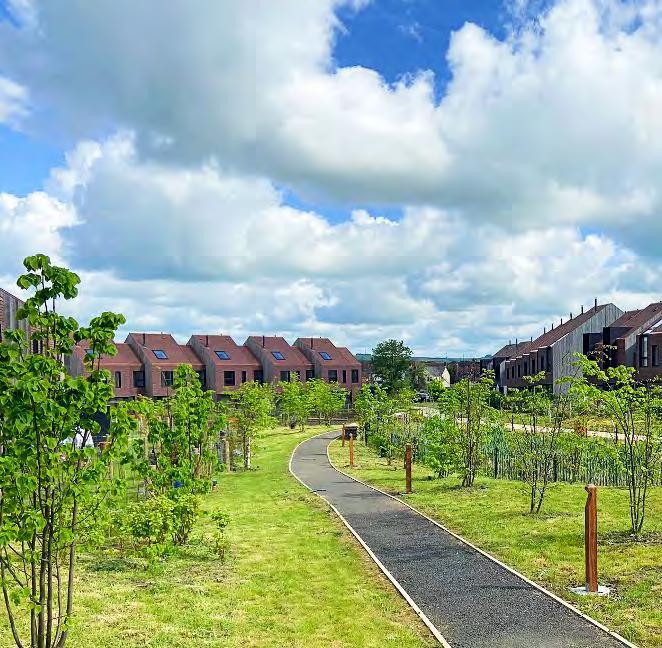
Reinvestment was slightly above target, with 190 units completed during the year. A further 187 homes are planned for 2025/26 in line with the business plan.
EBITDA MRI is 31.4% which is lower than target due to increased property investment expenditure. Interest cover is calculated per global accounts formula, which includes capitalised investment works of £18.6m and excludes £3.4m revenue grants, which are used to fund some of the property expenditure.
Adjusting for £3.4m revenue grants, the interest cover % per global accounts, as published by the Regulator of Social housing, is 67.8%.
EBITDA excluding MRI which is reported to our lenders is 215.9%. This is well above our board target of 150% and lenders’ minimum requirement of 130%.
The Social Housing Cost per unit (SHCP) of £7,228 is higher than target mainly due to additional property investment expenditure.
The Operating margins are below target due to increased property expenditure. The next year’s targets are above what was achieved this year.
In addition to the VfM metrics provided by our regulator, we also use other metrics that are common across the housing sector and benchmark against our peer group. The additional VfM measures shown in the table below are compared with targets, with last year and with the upper quartile performance of the benchmark group.
Key Performance Indicator
Actual 2024/25
The VfM KPI performance reflects the continued operational realities such as increased costs due to supply chains, inflationary pressures, labour shortages in the property sector, clearing backlog repairs and adverse impact of cost of living increases on our residents. The next year’s targets have been set to reflect expectations of improved performance and economic circumstances in 2025/26.
Despite these challenges, we are proud that our customer satisfaction results remain in upper quartile performance. We are improving our understanding of how our residents feel about the services. We will use the feedback from residents’ surveys and Tenant Satisfaction Measures, in conjunction with reviewing complaints and insurance claims to ensure a joined-up approach.
The financial year 2024/25 has been used to consolidate the significant improvements made over the previous year, including significant reductions in the void re-let time.
Arrears are slightly under target at year-end. We have appointed a Complaints Co-ordinator to enhance the customer service experience and to allow service areas to focus on learnings and improvements.
The targets for next financial year reflect expectations of improved performance and better economic outlook.
In addition to the Thriving Communities Fund, we have continued to invest heavily in our local communities. We have undertaken employee fundraising activities and across the year the social committee / employee fundraising has raised £965 – this has been donated to our chosen charity of the year, RSPCA. We have continued to use our Thriving Communities Fund, Nurture Your Neighbourhood Fund and SPARK initiatives.
Fairhive continues to make use of funds available to us, such as the Travis Perkins Community Legacy Fund – for every pound we spend with Travis Perkins, they put a certain percentage of this into the Community Legacy Fund for us to make use of. During 2024/25, £15,000 was donated from the fund to the Florence Nightingale Hospice in Aylesbury to allow them to purchase a new electric van which they will use to transport goods and materials around their commercial fund-raising retail premises.
Following the success of previous years, Boost Your Potential was offered to our residents again this year in partnership with Bucks Adult Learning. Residents took part in several sessions, including help with CV writing, to boost confidence in English and enhance skills to take the first step into the world of work. We also organised a work experience scheme with a law firm for our younger residents aged 15 – 17 where they had the opportunity to experience work as a solicitor, and learn life skills such as how to apply for jobs and budgeting advice.
We have continued to run our Resident Drop In events, and this year to encourage diversity in residents attending, we have piloted an online Resident Drop In. These events have been well attended and give residents the opportunity to meet with employees from different areas of the business to raise repairs or concerns about their home.
Our resident and community engagement hours increased from 3,233 to 3,624; over 1,000 residents were involved in community activity, an 18% increase on last year; and we delivered 490 resident training hours, a 75% increase on last year.
Our “Spark” initiative continued during the year. “Spark” is about helping to build brighter futures and is focussed on building skills and providing experiences, bringing together our most popular initiatives under one umbrella, these include:
• Apprenticeships, traineeships and work experience:
• A range of programs designed to enhance employee development and growth. This year, we provided 25,350 hours of apprenticeship training for 14 apprentices that we had during the year, which included 10 in the in-house repairs team.
• We provided 421.5 hours of work experience.
• “Tuition Plus”, support for residents’ children taking the 11 plus exam. Feedback continues to be extremely positive and this year, we provided 4,300 hours of Tuition Plus training for our residents.
• In keeping with our Equality, Diversity and Inclusion commitment as a Disability Confident Leader, on 27 March 2025, our Assistant Director of People attended the annual EDI Conference hosted by the National Housing Federation. Our Assistant Director of People was nominated to attend as he is a passionate Disability Confident Leader in our sector. The theme of the conference this year was EDI in Housing –Inclusive Futures: Driving Change Through Diversity.
• We will also be attending the Bucks Skills Show for SEND students on 10 June 2025.
In accordance with best practice we are systematically improving the sustainability of the properties and estates we manage, while reducing the environmental impact of our business operations.
Programmes are in place for bringing existing homes up to EPC C by 2030, while minimising carbon emissions and resource use, and improving climate resilience. Current measures being installed include roof and wall insulation, low carbon heating, renewables; and energy storage systems. Government funding has been secured, through both Social Housing Decarbonisation Fund (SHDF), Wave 2 and
Warm Home Social Housing Fund (WH:SHF) Wave 3, to supplement internal budgets and support delivery of this work.
We strive to ensure our new properties meet the highest environmental standards. Recent schemes have incorporated low carbon heating, solar panels, extra insulation, energy storage and green roofs.
Resident and colleague wellbeing is central to our sustainability work. We are using data from our large-scale roll-out of smart thermostat devices to ensure energy efficiency measures perform as intended and residents are warm and comfortable in their homes. With our residents we successfully run employment workshops and training. Internally there is ongoing work to upskill staff in key areas, such as renewable technologies, and we have an apprenticeship programme that helps transform lives. This year we have appointed our first Sustainability Apprentice.
We calculate our carbon footprint annually by gathering emission data on our business activities and homes, and are continually improving this reporting by gathering ever more Scope 3 data from our supply chain. Furthermore, we are developing our reporting capability for other environmental areas, including climate risk and resilience, waste management and the quality of green spaces. We have adopted the Social Reporting Standard recording tool and the SHIFT environmental assessment for the social housing sector. We achieved SHIFT silver in our last assessment and are aiming for SHIFT gold in our 2024/25 assessment. Our data gathering and environmental performance has been improved to help hit this target.
Offering real value for money, whilst continually improving the services provided is the driving force behind the being “Better” agenda within our Bigger, Better, Bolder and Beyond corporate strategy. This also underpins the new Fairhive 2025-30 strategy.
We have used our corporate strategy to identify key value for money plans to focus on in the coming years.
The main risks are regularly considered and reviewed by the Executive Leadership Team, Audit & Risk Committee and Board.
A Risk Management Framework is maintained which sets out our approach to risk, and how it is controlled and monitored. Following a review and rationalisation of the Risk Map in 2024, the Board approved 10 high-level Strategic Risks, which are underpinned by a number of detailed risks. In addition, the risk appetite is reviewed and approved annually by Board.
Development – Failure to deliver the planned development programme and/or maintain future development programme capacity.
Property - Failure to provide a repairs and maintenance service that is responsive to customer needs, meets relevant standards including Decent Homes, Health and Safety legislation (including Fire compliance) expected environmental improvements and planned maintenance all at budgeted costs.
The Audit & Risk Committee has a range of responsibilities surrounding risk management and it reviews 10 high-level strategic risks, which are supported by 64 operational risks, at each of its meetings as well as receiving assurance on the adequacy and effectiveness of controls.
The Board receives reports on risk management with focus on Strategic Risks and any operational risks that sit outside of appetite.
The summary of the key strategic risks is shown in the table below.
• Development and Assets Committee monitor programme and specific risk map.
• Approved development plan aligned with Business Plan.
• Delegated authority levels in place / Budget management.
• Stock condition data maintained and regularly updated - targeted 100% surveyed every 5 years (HPMC).
• Automated appointment/ scheduling processes.
• 30-year funded investment programme aligned with business plan.
• Regular monitoring of plan / Funding secured.
• Formalised contract award process and contract conditions kept up to date with legislation.
• Monitoring and management of contract programmes and cash flows.
• Continuously updated completion/handover forecasting.
• Full compliance with Decent Homes was achieved in 2023/24.
• Partnership link with major materials provider.
• Contract management / Performance Monitoring.
Housing - Failure to safeguard vulnerable residents, maintain equality & diversity standards or meet relevant standards for tenant involvement.
• Annual Regulatory compliance review.
• Allocations are made in line with Bucks home Choice Policy.
• Variety of communication channels available Involvement opportunities communicated.
• Service standards set and monitored by Residents Forum.
• Production of Annual tenant’s report.
Environment - Failure to implement, monitor and manage processes and controls to effectively mitigate potential environmental risks.
• Analysis & GIS mapping exercise to identify areas at high risk of flood, overheating and drought.
• Proactive programme planning and alignment with planned works.
• Alignment with PAS2035 considerations of overheating risk for all government-funded retrofit programmes.
• Decarbonisation Plan for the organisation.
• Flood Response Strategies for all buildings at potential risk in place.
• Financial commitment in business plan to bring homes up to required legislative standard.
Health & Safety Failure to meet our obligations in respect of Health & Safety as a landlord, employer, developer of properties in conjunction with partners.
• Statutory compliance management processes for Legionella, Lifts, Asbestos, Gas, Electric and Damp & Mould.
• Procedures in place to support relevant legal provisions required for new build properties.
• Recruitment in year of Assistant Director of Health and safety compliance with experience working for the HSE.
• Proactive management of remedial actions across all compliance areas is reported to the Board and Senior Leadership.
Financial - Failure to ensure financial planning, viability including maintenance of loan covenants, losing the ability to raise additional funds within expected costs and loss of effective management & monitoring by the Finance team.
• Scenario /Stress testing within business planning is in place and refreshed to reflect current risks.
• Business Plan approved by Board.
• Annual review of key assumptions in the business plan.
• Discretionary expenditure schedule produced by Finance used to mitigate adverse economic events.
• Sensitivity/scenario analysis for each planning year to reflect current market factors.
Governance - Failure to maintain a governance structure that does not support G1/V1 status or provide adequate alignment to evolving regulatory changes.
• Independent regulatory review / action plan completed.
• Business planning 30 years.
Fraud - Failure to implement, monitor and manage processes and controls to effectively mitigate potential fraud by staff, contractors.
• Delegated financial authorities in place.
• System security access in for financial approvals.
• Board training and development programme in place, linked to annual appraisal system.
• Ongoing dialogue with the RSH identifying any areas where the RSH has concerns.
• Corporate strategy 20252030 in place.
• Head of Finance review of all new starters.
• DBS checks undertaken with enhanced checks where appropriate.
IT - Failure to maintain an ICT service that meets the needs of the business, cannot prevent or recover quickly and effectively from disasters affecting the ICT infrastructure or data.
• Software and hardware security procedures in place.
• Disaster Recovery Program in place.
• Servers under maintenance agreement.
• IT User Group meets regularly.
• IT Policies.
• Potential new software providers are subject to due diligence during the tender process.
People - Failure to retain skilled staff, demonstrate strong and effective leadership or meet requirements of employment law and other miscellaneous legislation.
• Training programme for managers, employees and ECC.
• HR Policies and procedures in place and aligned with latest legislation.
• Qualified & dedicated HR Business Partners.
• Employment Law Insurance.
The Group and Association prepared financial statements for the year to 31 March 2025 under the financial reporting standard (FRS 102).
The Statement of Comprehensive Income on page 39 shows a surplus of £8.8 million for the year (2024: £16.9 million) and total comprehensive income for the year of £8.5 million (2024: £16.6 million). The financial results are within the business plan parameters and the lenders’ covenants have been fully met. The turnover for the year was £82.1 million (2024: £74.4 million).
The Statement of Financial Position is shown on page 42. The Group and the Association have loan facilities in place which cover all the committed development in the business plan, reinvestment and day to day operations. Further finance of £150 million was raised at the end of March 2024. Total undrawn facilities at 31 March 2025 of £158 million will be sufficient to support the development activity over the next 3 years.
The principal accounting policies are set out on pages 44 to 50 of the financial statements and have been reviewed by ARC. The policies that are most critical to the financial results relate to accounting for housing properties and include housing property depreciation. As required by the financial reporting standard the accounting policies provide information in relation to critical judgements and estimates.
At 31 March 2025 the Association managed 8,981 (2024: 8,814) housing properties. Housing properties are shown in the Statement of Financial Position at 31 March 2025 at net book value of £544.6 million (2024: £498.7 million).
After transfer of the surplus for the year of £8.8 million (2024: £16.9 million) and the actuarial loss on the pension schemes of £0.3 million (2024: £0.3 million) the reserves amount to £247.6 million (2024: £239.1 million).
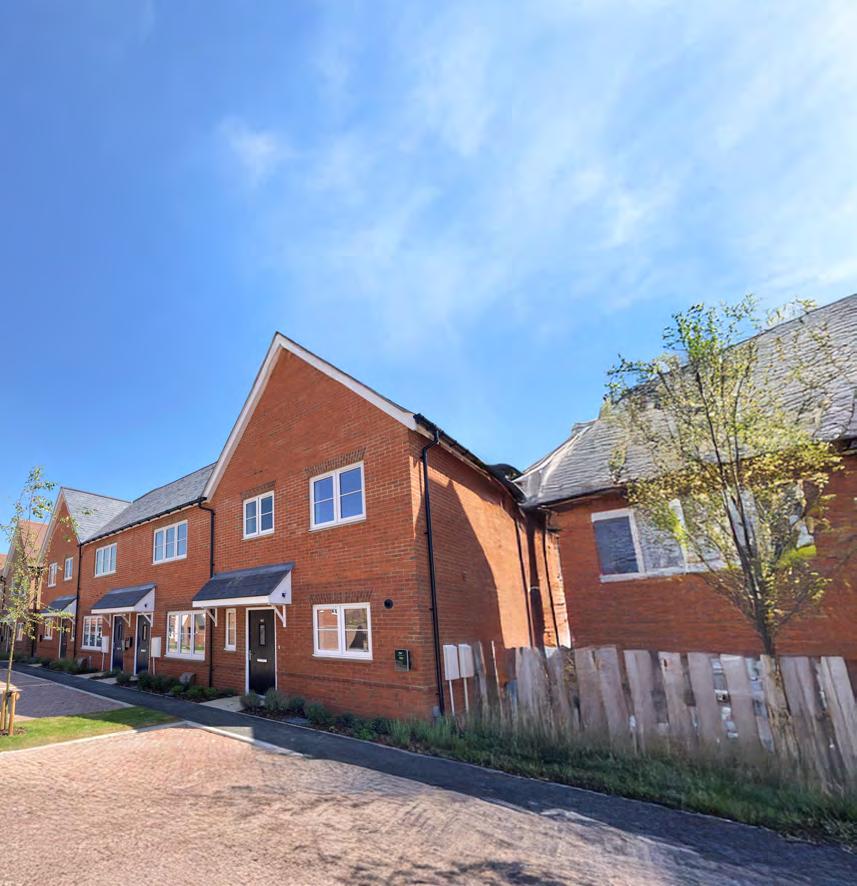
The Association participates in four pension schemes: two of the schemes are closed to new members and two remain open. The schemes open to new entrants are with the Social Housing Pension Scheme (SHPS) and comprise a Career Average Revalued Earnings (CARE) structure and a defined contribution scheme which is used for pension auto-enrolment. The closed schemes are a final salary pension scheme with SHPS and a Local Authority Pension Scheme with Buckinghamshire County Council Pension Fund. The Association has contributed to the defined benefit schemes in accordance with levels set by the actuaries, of 14.9%. The Association contributes a maximum of 9% to the defined contribution scheme.
At 31 March 2025 the Association has loan facilities arranged and available amounting to £435.0 million, (2024: £435.0 million). The total facility comprises £60.0 million of fixed loan debt with Barclays, £35.0 million of fixed debt with Nationwide, £215.0 million of revolving credit facilities and £125.0 million of capital market. The revolving credit facilities comprise five-year, ten-year and fifteen-year facilities and are provided by three lenders; Handelsbanken, Nationwide and Danske. The capital market funds include a 35 year, £70.0 million facility and a 30 year facility for £55.0 million. The Barclays debt is repayable between 2026 and 2031. The revolving credit facilities and Nationwide fixed debt are repayable 2029, 2034 and 2039. The two capital market debts are repayable in 2051 and 2055. Of the loan facilities, at 31 March 2025 the Company had drawn £277.0 million (2024: £250.0 million) and had £158.0 million of undrawn revolving credit facilities available (2024: £185.0 million).
The Association is risk averse with respect to its treasury policy and endeavours to have a mix of fixed and variable interest rates for its drawn funds. At 31 March 2025, £220.0 million of the facility were at fixed rates of interest ranging from 2.4% to 6.1%.
The Association borrows and invests only in pounds sterling.
Cash inflows and outflows during the year are shown in the Consolidated Statement of Cash flow on page 43. The net cash generated from operating activities for the year to 31 March 2025 was £40.8 million (2024: £14.1 million). Net cash outflow from investment activities was £54.5 million (2024: £48.9 million) mainly due to £58.8 million spend on construction of new housing properties and investment in existing properties. Net cash inflow from financing activities was £14.9 million (2024: £35.9 million). A net increase in cash was £1.2 million (2024: £1.2 million).
The Association has long term debt facilities in place including £158.0 million of undrawn facilities at 31 March 2025 (2024: £185.0 million) which provides adequate resource to finance the Association’s committed development programme, reinvestment and day to day operations.
The Board has reviewed cash flow forecasts and has also carried out stress testing of its business plan. The outcome of the stress testing demonstrated that there is sufficient headroom on gearing and interest covenants and peak debts are within available funds. The Board has a reasonable expectation that the Association has adequate resources to continue in operational existence for the foreseeable future, being a period of at least twelve months after the date on which the report and financial statements are signed. For this reason, it continues to adopt the going concern basis in the financial statements.
Our focus for next year will be to embed our strategic objectives of the new 2025-30 Fairhive, strategy and implement year one projects.
We will assess the implications to Fairhive of the Government spending review June 2025 - £2.5bn of low-cost finance and £39bn Affordable Housing Fund.
Our continued commitment to development is to provide 150 new homes per annum which will include a number of new affordable and shared ownership homes and will increase our capacity to deliver more social rented homes.
We have successfully secured a £6.0 million grant from the Social Housing Decarbonisation Fund Wave 2.1. awarded by the Department for Energy Security and Net Zero. We will match this grant by own spend on environmental improvements in our existing homes such as wall insulation, air source heat pumps and solar panels.
We progressed our digital technology transformation project, which is a 3-year project to further enhance our digital offer to our residents and our employees.
The Board is responsible for preparing the report of the board of management and the strategic report and financial statements in accordance with applicable law and regulations. Association law in the United Kingdom requires the Board to prepare financial statements for each financial year. Under that law the Directors have elected to prepare the financial statements under the historical cost convention in accordance with applicable law and UK Generally Accepted Accounting Practice (UK GAAP). For the Group and the Association, this includes the Co-operative and Community Benefit Societies Act 2014 (and related group accounts regulations), the Housing and Regeneration Act 2008, FRS 102 “the Financial Reporting Standard applicable in the United
Kingdom and the Republic of Ireland”, the Statement of Recommended Practice (SORP) for Registered Social Housing Providers 2018, “Accounting by registered social housing providers”, the Accounting Direction for Private Registered Providers of Social Housing 2022 and with the Financial Conduct Authority (FCA).
The Board members must not approve the financial statements unless they are satisfied that they give a true and fair view of the state of affairs of the Group, the Association and of the surplus or deficit of the Group and the Association for the year.
In preparing these financial statements the Board is required to:
• select suitable accounting policies and apply them consistently;
• make judgements and accounting estimates that are reasonable and prudent;
• state whether applicable UK Accounting Standards and the Housing SORP 2018: Statement of Recommended Practice Accounting by Registered Housing Providers, have been followed, subject to any material departures disclosed and explained in the financial statements; and
• prepare the financial statements on the going concern basis unless it is inappropriate to presume that the Group and the Association will continue in business.
The Board is responsible for keeping adequate accounting records that are sufficient to show and explain the Group and the Association’s transactions and which disclose with reasonable accuracy at any time the financial position of the Group and the Association and enable it to ensure that the financial statements comply with the Housing and Regeneration Act 2008 and the Housing Direction for Registered Providers of Social Housing Act 2022.
They are also responsible for safeguarding the assets of the Group and the Association and hence for taking reasonable steps for the prevention and detection of fraud and other irregularities.
In so far as each of the Directors is aware:
• there is no relevant audit information of which the auditor is unaware; and
• the Directors have taken all steps that they ought to have taken to make themselves aware of any relevant audit information and to establish that the auditor is aware of that information.
The Board is responsible for the maintenance and integrity of the corporate and financial information on the Association’s website. Legislation in the United Kingdom governing the preparation and dissemination of financial statements may differ from legislation in other jurisdictions.
Crowe U.K. LLP were appointed as external auditors on 7 February 2024.
In preparing the Report of the Board of Management and Strategic Report, the Board has followed the principles set out in the Statement of Recommended Practice: Accounting by Registered Social Housing Providers.
The Report of the Board of Management and Strategic Report were approved by the Board on 31 July 2025 and signed on its behalf by:

Stephen Stringer Chair of the Board
31 July 2025
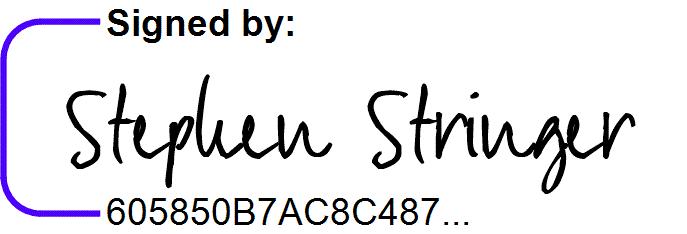

We have audited the financial statements of Fairhive Homes Limited (the “Association”) and its subsidiaries (“the Group) for the year ended 31 March 2025 which comprise the consolidated and Association statement of comprehensive income, the consolidated and Association statement of changes in reserves, the consolidated and Association statement of financial position, the consolidated and Association statement of cash flows and notes to the financial statements, including significant accounting policies. The financial reporting framework that has been applied in their preparation is applicable law and United Kingdom Accounting Standards, including Financial Reporting Standard 102 The Financial Reporting Standard applicable in the UK and Republic of Ireland (United Kingdom Generally Accepted Accounting Practice).
In our opinion, the financial statements:
• give a true and fair view of the state of the Group and Association affairs as at 31 March 2025 and of its income and expenditure for the year then ended;
• have been properly prepared in accordance with United Kingdom Generally Accepted Accounting Practice;
• have been prepared in accordance with the requirements of the Co-operative and Community Benefit Societies Act 2014, the Housing and Regeneration Act 2008 and the Accounting Direction for Private Registered Providers of Social Housing 2022.
We conducted our audit in accordance with International Standards on Auditing (UK) (ISAs (UK)) and applicable law. Our responsibilities under those standards are further described in the Auditor’s responsibilities for the audit of the financial statements section of our report. We are independent of the society in accordance with the ethical requirements that are relevant to our audit of the financial statements in the UK, including the FRC’s Ethical Standard, and we have fulfilled our other ethical responsibilities in accordance with these requirements. We believe that the audit evidence we have obtained is sufficient and appropriate to provide a basis for our opinion.
In auditing the financial statements, we have concluded that the Board’s use of the going concern basis of accounting in the preparation of the financial statements is appropriate.
Based on the work we have performed, we have not identified any material uncertainties relating to events or conditions that, individually or collectively, may cast significant doubt on the Group and Association’s ability to continue as a going concern for a period of at least twelve months from when the financial statements are authorised for issue.
Our responsibilities and the responsibilities of the Board with respect to going concern are described in the relevant sections of this report.
The Board is responsible for the other information contained within the annual report. The other information comprises the information included in the annual report, other than the financial statements and our auditor’s report thereon. Our opinion on the financial statements does not cover the other information and we do not express any form of assurance conclusion thereon.
Our responsibility is to read the other information and, in doing so, consider whether the other information is materially inconsistent with the financial statements or our knowledge obtained in the audit or otherwise appears to be materially misstated. If we identify such material inconsistencies or apparent material misstatements, we are required to determine whether this gives rise to a material misstatement in the financial statements themselves. If, based on the work we have performed, we conclude that there is a material misstatement of this other information, we are required to report that fact.
We have nothing to report in this regard.
We have nothing to report in respect of the following matters in relation to which the Cooperative and Community Benefit Societies Act 2014 requires us to report to you if, in our opinion:
• a satisfactory system of controls over transactions has not been maintained; or
• the society has not kept proper accounting records; or
• the financial statements are not in agreement with the books of account; or
• we have not received all the information and explanations we require for our audit.
As explained more fully in the Board’s responsibilities statement set out on pages 34 to 35, the Board is responsible for the preparation of the financial statements and for being satisfied that they give a true and fair view, and for such internal control as the Board determines is necessary to enable the preparation of financial statements that are free from material misstatement, whether due to fraud or error.
In preparing the financial statements, the Board is responsible for assessing the society’s ability to continue as a going concern, disclosing, as applicable, matters related to going concern and using the going concern basis of accounting unless the Board either intends to liquidate the society or to cease operations, or have no realistic alternative but to do so.
Our objectives are to obtain reasonable assurance about whether the financial statements as a whole are free from material misstatement, whether due to fraud or error, and to issue an auditor’s report that includes our opinion. Reasonable assurance is a high level of assurance, but is not a guarantee that an audit conducted in accordance with ISAs (UK) will always detect a material misstatement when it exists.
Misstatements can arise from fraud or error and are considered material if, individually or in the aggregate, they could reasonably be expected to influence the economic decisions of users taken on the basis of these financial statements.
Irregularities, including fraud, are instances of non-compliance with laws and regulations. We design procedures in line with our responsibilities, outlined above, to detect material misstatements in respect of irregularities, including fraud. The extent to which our procedures are capable of detecting irregularities, including fraud is detailed below:
A further description of our responsibilities for the audit of the financial statements is available on the Financial Reporting Council’s website at: www.frc.org.uk/auditorsresponsibilities. This description forms part of our auditor’s report.
We obtained an understanding of the legal and regulatory frameworks within which the Association operates, focusing on those laws and regulations that have a direct effect on the determination of material amounts and disclosures in the financial statements such as the Co-operative and Community Benefit Societies Act 2014 (and related Directions and regulations), the Housing and Regeneration Act 2008 and other laws and regulations applicable to a registered social housing provider in England together with the Housing SORP. We assessed the required compliance with these laws and regulations as part of our audit procedures on the related financial statements items.
In addition, we considered provisions of other laws and regulations that do not have a direct effect on the financial statements but compliance with which might be fundamental to the Group and Association’s ability to operate or to avoid a material penalty. We also considered the opportunities and incentives that may exist within the Association for fraud. The laws and regulations we considered in this context for the UK operations were requirements imposed by the Regulator of Social Housing, health and safety, taxation and employment legislation.
Auditing standards limit the required audit procedures to identify non-compliance with these laws and regulations to enquiry of the Board and other management and inspection of regulatory and legal correspondence, if any.
We identified the greatest risk of material impact on the financial statements from irregularities, including fraud, to be within the timing of recognition of revenue grant and variable service charge income and the override of controls by management. Our audit procedures to respond to these risks included enquiries of management, internal audit and
the Audit & Risk Committee about their own identification and assessment of the risks of irregularities, sample testing on the posting of journals, reviewing accounting estimates for biases, reviewing regulatory correspondence, designing audit procedures over the timing of income recognition and reading minutes of meetings of those charged with governance.
Owing to the inherent limitations of an audit, there is an unavoidable risk that we may not have detected some material misstatements in the financial statements, even though we have properly planned and performed our audit in accordance with auditing standards. For example, the further removed non-compliance with laws and regulations (irregularities) is from the events and transactions reflected in the financial statements, the less likely the inherently limited procedures required by auditing standards would identify it. In addition, as with any audit, there remained a higher risk of non-detection of irregularities, as these may involve collusion, forgery, intentional omissions, misrepresentations, or the override of internal controls. We are not responsible for preventing non-compliance and cannot be expected to detect non-compliance with all laws and regulations.
This report is made solely to the society’s members as a body in accordance with Section 87 of the Co-operative and Community Benefit Societies Act 2014. Our audit work has been undertaken so that we might state to the society’s members those matters we are required to state to them in an auditor’s report and for no other purpose. To the fullest extent permitted by law, we do not accept or assume responsibility to anyone other than the society and the Association’s members as a body, for our audit work, for this report, or for the opinions we have formed.

Crowe U.K. LLP
Statutory Auditor
55 Ludgate Hill
London
EC4M 7JW
Date: 11th August 2025
The notes on pages 44 to 78 form part of these financial statements. The financial statements were approved and authorised for issue by the Board on 31 July 2025 and signed on its behalf by:

Stephen Stringer
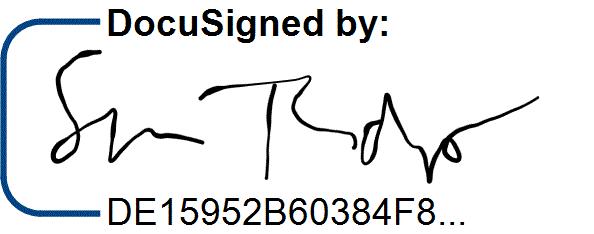
Susan Ralphs
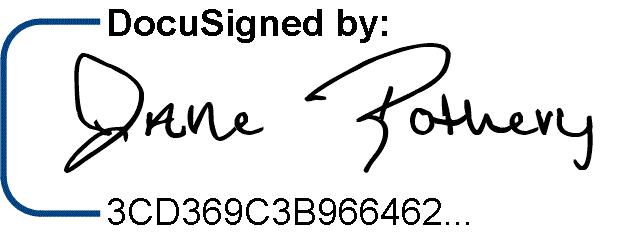
Jane Rothery Chair of the Board Board Member Company Secretary
The notes on pages 44 to 78 form part of these financial statements.
1 April 2023
at 31 March 2024
The notes on pages 44 to 78 form part of these financial statements.
The notes on pages 44 to 78 form part of these financial statements. The financial statements were approved and authorised for issue by the Board on 31 July 2025 and signed on its behalf by:

Stephen Stringer

Susan Ralphs

Jane Rothery Chair of the Board Board Member Company Secretary
The notes on pages 44 to 78 form part of these financial statements.
The Association is incorporated in England. The financial statements are prepared under historic cost convention modified for revaluation of investment properties and pension liability.
The functional and presentational currency used is pound sterling.
The Association has two subsidiaries; Fairfax Housing Limited and Fairfax Design & Build Limited. Both companies are registered under the Companies Act. Fairfax Design & Build Limited started its operations during 2021/22 and Fairfax Housing Limited remained dormant since incorporation.
Basis of accounting
The financial statements of the Association are prepared in accordance with UK Generally Accepted Accounting Principles (UK GAAP) including Financial Reporting Standard 102 (FRS 102) and the Housing SORP 2018: Statement of Recommended Practice for Registered Social Housing Providers and comply with the Accounting Direction for Private Registered Providers of Social Housing 2022.
Basis of consolidation
The consolidated financial statements present the results of Fairhive Homes Limited and its subsidiaries (“The Group”) as if they formed a single entity.
Uniform accounting policies have been adopted across the Group, and intercompany transactions and balances between have therefore been eliminated in full.
Where there is a business combination that is in substance a gift, any excess of the fair value of the assets received over the fair value of the liabilities assumed is recognised as a gain in the statement of comprehensive income. This gain represents the gift of the value of one entity to another and shall be recognised as income. Where the fair value of the liabilities exceeds the fair value of assets, the loss represents net obligations assumed and shall be recognised as an expense.
The Association’s business activities, its current financial position and factors likely to affect its future development are set out within the Report of the Directors. The Association has in place long and medium-term debt facilities which provide adequate resources to finance the committed development programme, reinvestment and the Association’s day to day operations.
The Board has reviewed cash flow forecasts and considered downside scenarios which allow for the potential impact of high inflation and falling house prices and delays in timing of sales as well as increased arrears, voids and bad debts.
Having considered the forecast cash flow and scenario analysis the Board concluded that the Association has sufficient headroom on liquidity and will operate well within its loan covenants requirements including the risk trigger level set by the Board.
As a result, the Board is satisfied that there is reasonable expectation that the Association has adequate resources to continue in operational existence for the foreseeable future, being a period of at least twelve months after the date on which the report and financial statements are signed. For this reason, it continues to adopt the going concern basis in the financial statements.
The Association charges Value Added Tax (VAT) on some of its income and is able to recover part of the VAT it incurs on expenditure. The financial statements include VAT to the extent that it is suffered by the Association and not recoverable from HM Revenue & Customs. The balance of VAT payable/recoverable at the year-end is included as a current liability/asset.
Turnover and revenue recognition
Turnover comprises rental and service charge income, income from shared ownership first tranche sales, other services included at the invoiced value (excluding VAT where recoverable) of goods and services and grants receivable from local authorities and Homes England.
Rental and service charge income is recognised from the point when properties under development reach practical completion or otherwise become available for letting, net of any voids. Income from first tranche sales is recognised at the point of legal completion of the sale. Revenue grants are recognised when the conditions for receipt of agreed grant funding have been met.
Charges for support services funded under Supporting People are recognised as they fall due under the contractual arrangements with Administering Authorities.
Interest is capitalised on borrowings to finance developments to the extent that it accrues in respect of the period of development if it represents either:
a) interest on borrowings specifically financing the development programme after deduction of social housing grant received in advance; or b) a fair amount of interest on borrowings of the Association as a whole after deduction of social housing grant received in advance to the extent that they can be deemed to be financing the development programme.
Other interest payable is charged to the statement of comprehensive income in the year.
Financial instruments which meet the criteria of a basic financial instruments as defined in Section 11 of FRS 102 are accounted for under an amortised historic cost model.
Basic financial instruments are recognised at amortised historic cost.
Short term debtors are measured at transaction price, less any impairment. Loans receivable are measured initially at fair value, net of transaction costs, and are measured subsequently at amortised cost using the effective interest method, less any impairment.
Short term trade creditors are measured at the transaction price. Other financial liabilities, including bank loans, are measured initially at fair value, net of transaction costs, and are measured subsequently at amortised cost using the effective interest method.
Short-term employee benefits and contributions to defined contribution plans are recognised as an expense in the period in which they are incurred.
The Association participates in four pension schemes; the Social Housing Pension Scheme (SHPS) and the Buckinghamshire County Council Pension Fund (BCCPF). Within the Social Housing Pension Scheme, the Association operates four benefit structures: two defined benefit and two defined contribution. The BCCPF and the SHPS final salary structure are closed to new entrants. The benefit structures open to new entrants are SHPS Career Average Revalued Earnings and SHPS defined contribution schemes.
The scheme assets are measured at fair value. Scheme liabilities are measured on an actuarial basis using the projected unit credit method and are discounted at appropriate high quality corporate bond rates.
The current service cost and costs from settlements and curtailments are charged against operating surplus. Past service costs are recognised in the current reporting period within the income and expenditure account. Interest is calculated on the net defined benefit liability. Re-measurements are reported in other comprehensive income. Further details are set out in note 13.
For the Buckinghamshire County Council Pension Fund (BCCPF), the operating costs of providing retirement benefits to participating employees are recognised in the accounting periods in which the benefits are earned. The related finance costs, expected return on assets and any other changes in fair value of the assets and liabilities, are recognised in the accounting period in which they arise.
The current service cost and costs from settlements and curtailments are charged against operating surplus. Past service costs are recognised in the current reporting period within the income and expenditure account. Interest is calculated on the net defined benefit liability. Re-measurements are reported in other comprehensive income. Pension asset is not recognised as not considered recoverable. Further details are set out in note 13.
Housing properties are properties available for rent, and properties subject to shared ownership leases.
The Association applied a transitional relief available under FRS 102 to revalue housing properties transferred from the council in 2006 at the date of transition (1 April 2014) and to hold this value as ‘deemed cost’.
All properties developed or purchased subsequent to transfer, are held at cost less depreciation. The cost is the cost of acquired properties, land, development costs, capitalised interest and improvements. Works to existing properties which replace a component that has been treated separately for depreciation purposes are capitalised as improvements. Any remaining net book value of the replaced component is disposed of and recognised as accelerated depreciation.
Shared ownership properties are split proportionally between current and fixed assets based on the element relating to expected first tranche sales. The first tranche proportion is classed as current asset and related sales proceeds included in turnover, and the remaining element is classed as fixed asset and included in housing properties at cost, less any provisions needed for depreciation.
Government grants
Government grants include grants receivable from Homes England, local authorities, and other government Associations. Government grants received for housing properties are recognised in income over the useful life of the housing property structure and, where applicable, its individual components (excluding land) under the accruals model.
Grants relating to revenue are recognised in the statement of comprehensive income over the same period as the expenditure to which they relate once reasonable assurance has been gained that the entity will comply with the conditions and that the funds will be received.
Grants due from government Associations or received in advance are included as current assets or liabilities.
Government grants received for housing properties are subordinated to the repayment of loans by agreement with Homes England. Government grants released on sale of a property may be repayable but are normally available to be recycled and are credited to a Recycled Capital Grant Fund and included in the statement of financial position in creditors. Grant is amortised over the useful economic life of the asset.
If there is no requirement to recycle or repay the grant on disposal of the asset, any unamortised grant remaining within creditors is released and recognised through the statement of comprehensive income.
Where individual components are disposed of and this does not create a relevant event for recycling purposes, any grant which has been allocated to the component is released to the statement of comprehensive income. Upon disposal of the associated property, the Association is required to recycle these proceeds and recognise them as a liability.
Grants received from non-government sources are recognised using the performance model. A grant which does not impose specified future performance conditions is recognised as revenue when the grant proceeds are received or receivable. A grant that imposes specified future performance-related conditions on the Association is recognised only when these conditions are met. A grant received before the revenue recognition criteria is satisfied is recognised as a liability.
The Association separately identifies the major components which comprise its housing properties, and charges depreciation, so as to write-down the cost of each component to its estimated residual value, on a straight line basis, over its estimated useful economic life. Freehold land is not depreciated.
The Association depreciates the major components of its housing properties over their expected useful lives on the following basis:
Structure (new build) 125 years
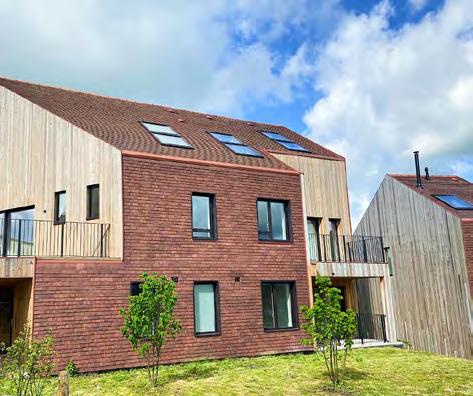
Leasehold properties are amortised over the life of the lease or their estimated useful economic lives in the business, if shorter.
Housing properties are assessed annually for impairment indicators at an individual property level, which is deemed to be a cash generating unit (CGU). Where indicators are identified an assessment for impairment is undertaken comparing the asset’s carrying amount to its recoverable amount. Where the carrying amount of an asset is deemed to exceed its recoverable amount, the asset is written down to its recoverable amount, this is likely to be the value in use of the asset based on its service potential. The resulting impairment loss is recognised as expenditure in the statement of comprehensive income. Where an asset is currently deemed not to be providing service potential to the Association, its recoverable amount is its fair value less costs to sell.
Interest on borrowings is capitalised to housing properties during the course of construction up to the date of practical completion of each scheme. The interest is on net borrowings to the extent that is deemed to be financing the scheme.
Depreciation is provided on a straight-line basis on the cost of other tangible fixed assets, to write them down to their estimated residual values over their expected useful lives. No depreciation is provided on freehold land.
Assets are depreciated over the periods shown below:
Shared ownership first tranche sales, completed properties for outright sale and property under construction are valued at the lower of cost and net realisable value. Cost comprises materials, direct labour and direct development overheads. Net realisable value is based on estimated sales price after allowing for all further costs of completion and disposal.
Provisions are recognised when the Association has a present obligation (legal or constructive) as a result of a past event, it is probable that the Association will be required to settle the obligation, and a reliable estimate can be made of the amount of the obligation.
The amount recognised as a provision is the best estimate of the consideration required to settle the present obligation at the end of the reporting period, considering the risks and uncertainties surrounding the obligation.
Where the effect of the time value of money is material, the amount expected to be required to settle the obligation is recognised at present value using a discount rate. The unwinding of the discount is recognised as a finance cost in the statement of comprehensive income in the period it arises.
Loan
Issue costs of long and medium-term finance are deducted from the amount of loan drawn down. This cost is charged to the statement of comprehensive income evenly over the period of the loan.
The Association recognises a provision for annual leave accrued by employees as a result of services rendered in the current period, and which employees are entitled to carry forward and use within the next 12 months. The provision is measured at the salary cost payable for the period of absence.
Under the terms of the transfer agreement, some of the proceeds from Right to Buy sales are shared with the Buckinghamshire Council (formally Aylesbury Vale District Council). On completion of a Right to Buy sale contract, the share of the proceeds receivable by the Association are credited to the statement of comprehensive income.
The Association establishes restricted reserves for specific purposes where their use is subject to external restrictions.
The difference on transition to FRS 102 accounting between the fair value of social housing properties transferred from Aylesbury Vale District Council and the historical cost carrying value is credited to the revaluation reserve.
Key accounting judgements in applying accounting policies and key sources of estimation
Preparation of the financial statements requires management to make significant judgements and estimates. The items in the financial statements where these judgements and estimates have been made are set out below.
Key accounting judgements
The following are the significant management judgements made in applying the accounting policies that have the most significant effect on the financial statements.
Capitalisation of property development costs and interest
Distinguishing the point at which a project is more likely than not to continue, allowing capitalisation of associated development costs requires judgement. After capitalisation management monitors the asset and considers whether changes indicate that impairment is required.
Categorisation of housing properties
The categorisation of housing properties as investment properties or property, plant and equipment based on the use of the asset requires judgement.
Allocation of value to land, structure and components
Value is split between components, land and structure: the land value is allocated first, then the component value and the remainder is allocated to structure. Value has been attributed to land and components based on cost.
The Association have reviewed its funding agreements and have concluded that they meet the conditions of a basic financial instrument under section 11.9 of FRS102 inasmuch that they are contractual payments to the holder (lender), assessed in sterling in which the debt instrument is denoted and are either a positive fixed rate or a positive variable rate.
Information about estimates and assumptions that have the most significant effect on recognition and measurement of assets, liabilities, income and expenses is provided below. Actual results may be substantially different.
Management reviews its estimate of the useful lives of depreciable assets at each reporting date based on the expected utility of the assets. Uncertainties in these estimates relate to technological obsolescence that may change the utility of certain software and IT equipment and changes to decent homes standards which may require more frequent replacement of key components.
Management’s estimate of the DBO is based on a number of critical underlying assumptions such as standard rates of inflation, mortality, discount rate and anticipation of future salary increases. Variation in these assumptions may significantly impact the DBO amount and the annual defined benefit expenses, as analysed in note 13 Pension schemes.
The sensitivity analysis disclosed in note 13 Pension schemes sets out the impact of a small change in the discount rates and mortality assumptions on the defined benefit obligation and projected service costs.
An annual review is undertaken of existing social housing properties to determine if there have been indicators of impairment in the current financial year. The review is done on a scheme level, which is deemed to be a cash generating unit. Impairment reviews are carried out in accordance with the Housing SORP and any impairment loss is recognised as operating expenditure.
Key accounting judgements in applying accounting policies and key sources of estimation (continued)
Net realisable value is based on the estimated selling price less selling costs. Estimated selling prices were provided by external valuers and by reference to actual selling prices for completed developments. For schemes under construction, the estimated costs to completion are based on approved budget and forecast.
The estimate for receivables relates to the recoverability of the balances outstanding at year end. A review is performed on outstanding debts to consider whether each debt is recoverable.
Properties that are held to earn commercial rentals are treated as investment properties and accounted for in accordance with section 16 of FRS 102. Investment properties are carried at fair value determined annually by external valuers and derived from the current market rents for comparable real estate, adjusted if necessary for any difference in the nature, location or condition of the specific asset. Changes in fair value are recognised in the Statement of Comprehensive Income.
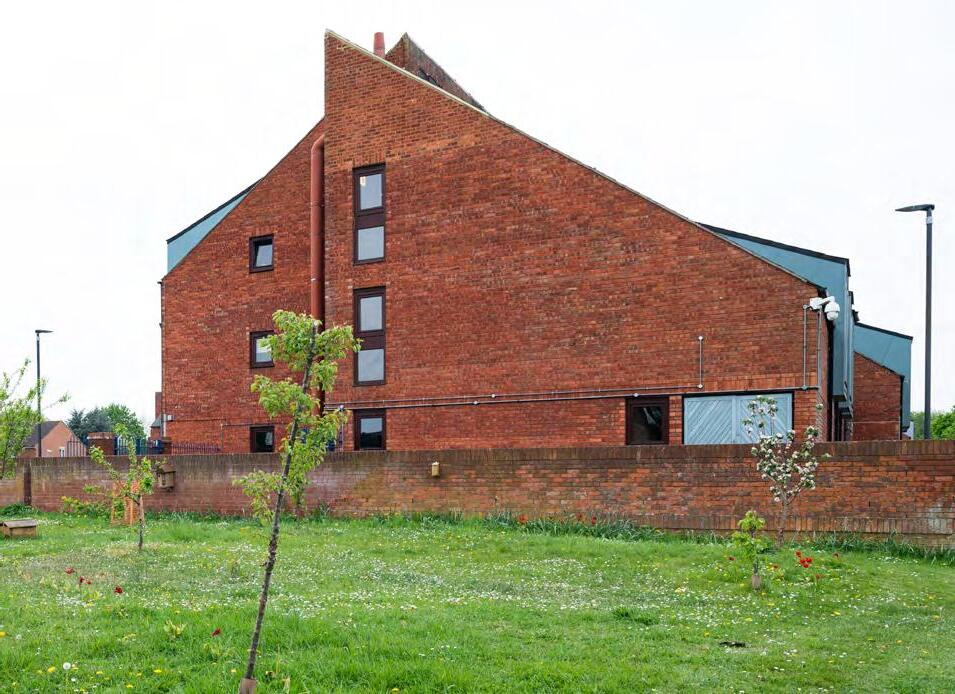
3a. Turnover, cost of sales, operating costs and operating surplus
3a. Turnover, cost of sales, operating costs and operating surplus (continued)
3b. Turnover, cost of sales, operating costs and operating surplus/ (deficit)
3b. Turnover, cost of sales, operating costs and operating surplus (continued)
Other includes 22 resettlement units for Ukraine/Afghan refugees that we manage less 14 affordable units we manage for others.
This is arrived at after charging/(crediting):
The remuneration paid to the auditors in respect of other services comprises: £1,675.00 for Right to buy audit and £12,325.00 for service charge and decarbonisation grant audits.
Headcount (FTE):
The average number of employees expressed as full-time equivalents (FTE) calculated based on 37 hours, during the year was:
The amount of redundancy pay in the year was £88,985.00.
Salaries payable (including bonuses and pensions) to employees including Executive Leadership Team earning £60,000.00 or more were:
Emoluments payable to Executive Directors and board members
The Executive Directors comprise the Chief Executive, Executive Director of Finance & Resources, Executive Director of Operations and Executive Director of Development.
The emoluments of the highest paid director, the Chief Executive, excluding pension contributions, were £248,361.00 (2024: £236,319.00).
The Chief Executive is a member of the Social Housing Pension Scheme. He is an ordinary member of the pension scheme and no enhanced or special terms apply.
Emoluments payable to Board Members (gross salary excluding expenses)
Non-executive board members are not members of the pension scheme. Their emoluments for the year are set out below:
The board members received £3,618.00 (2024: £2,872.00) for expenses during the year.
The Association is registered with charitable rules under Co-operative and Community Benefits Societies Act and as such received charitable relief from Corporation Tax. Any surplus made during the year is applied to further our charitable purposes. Any surplus made by a non-charitable Group member (Fairfax Design & Build Limited) has been donated to the Association under the deed of covenant.
The Association participates in three pension schemes:
a) Social Housing Pension Scheme (SHPS) - defined benefit scheme
The scheme is a multi-employer scheme which provides benefits to some 500 nonassociated employers. The Scheme is a defined benefit scheme in the UK.
The last triennial valuation of the scheme for funding purposes was carried out as at 30 September 2023. A recovery plan has been put in place with additional annual deficit contributions of £286,128 paid during the financial year (2024: £280,071)
The scheme is classified as a ‘last-man standing arrangement’. Therefore, the Association is potentially liable for other participating employers’ obligations if those employers are unable to meet their share of the scheme deficit following withdrawal from the scheme. Participating employers are legally required to meet their share of the scheme deficit on an annuity purchase basis on withdrawal from the scheme.
On transfer of engagement from BHA, the Association took over the responsibility for BHA’s SHPS defined benefit pension scheme. The details of that scheme are disclosed separately in the tables below.
We have been notified by the Trustees of the SHPS Scheme that it has performed a review of the changes made to the Scheme’s benefits over the years and the result is that there is uncertainty surrounding some of those changes. The Trustee has been advised to seek clarification from the Court on these items. This process is ongoing and the matter is unlikely to be resolved before the end of 2025 at the earliest.
It is recognised that this is could potentially impact the value of Scheme Liabilities, but until Court directions are received it is not possible to calculate the impact of this issue, particularly on an individual employer basis, with any accuracy at this time. No adjustment has been made in these financial statements in respect of this potential issue.
b) Buckinghamshire County Council Pension Fund (BCCPF).
The BCCPF is a multi-employer scheme, administered by Buckinghamshire County Council under the regulations governing the Local Government Pension Scheme, a defined benefit scheme.
The scheme is closed to new entrants. The employer’s contribution rate was nil % of pensionable salaries (2024: nil%).
The most recent actuarial valuation of the scheme was carried out as at 31 March 2022 by a qualified independent actuary. It showed £571,000 surplus with no additional contributions required for the period to 31 March 2025, when the next actuarial valuation is due.
Following consultation with members, the scheme was closed to future accruals from 1 April 2023. The Association has become a deferred employer in the scheme under the Deferred Debt Agreement.
c) Social Housing Pension Scheme (SHPS) - defined contribution scheme
It is funded and contracted out of the state pension scheme. The amount charged to the consolidated statement of comprehensive income represents the employer’s contribution payable to the scheme.
Summary of accounting disclosures in relation to defined benefit schemes are set out on the next page.
Consolidated Statement of Comprehensive Income:
gain/(loss) on defined benefit pension scheme:
Consolidated statement of financial position:
asset on BCCPF scheme has not been recognised as not considered recoverable.
Defined benefit schemes
Principal actuarial assumptions used by the actuary at the statement of financial position date:
At 31 March 2025, 5,155 properties were charged against our loans at £687.3 million as per Market value subject to tenancies (MV-T) valuation.
Impairment:
The Group assessed its portfolio for indicators of impairment at the statement of financial position date. This is an annual process and includes looking at the changes in government policy, materially higher than anticipated development costs, reduction in house market prices for shared ownerships properties held for sale, changes for market demand for properties and the properties with the most voids throughout the year.
A review of existing portfolio for indicators of impairment resulted in nil charge to the Statement of comprehensive income (2024: nil).
The Association’s investment properties are valued annually on 31 March at fair value, determined by JLL, an independent, professionally qualified valuer. The valuations were undertaken in accordance with the Royal Institute of Chartered Surveyors’ Appraisal and Valuation Manual.
The valuation is derived from current market rents and investment property yields for comparable properties, considering the nature, location or condition of the specific asset. Fair value has been determined through a desktop valuation.
Investment properties are valued using the investment method of valuation. There are two categories of investment property: commercial properties and garages. For the commercial properties the nature of the properties, the lease terms and the varying strength of the tenant covenant was considered before rental income was capitalised by applying all-risks yields of between 8% and 12%. Garage rental income has been valued applying a yield of 10% to estimated net rental income.
There is a gain on revaluation of investment property of £1,010,000 (2024: £1,240,000), which has been recognised in the Consolidated Statement of Comprehensive Income.
Rent and service charges receivable are shown at gross amounts with corresponding rent and service charges received in advance shown in note 19.
The grants have been recycled into this fund, following property sales under the preserved Right to Acquire.
after more than one year
The bank loans and private placements are secured by a fixed charge over the Association’s properties. In addition, there is a floating charge over the assets of the Association in favour of the security trustee.
Terms of repayment and interest rates
The interest on long term loans and note purchase agreements are paid in quarterly instalments over the life of the loans. £68.0m of the loans are bullet payments and with our two note purchase agreements, one agreement is for 30 years which is repaid on a bullet payment basis, whereas the second agreement is for 35 years and is repaid on a phased basis. The loans are fully repaid between 2022 and 2035. The average cost of funding at 31 March 2025 is 4.3% (2024: 3.6%).
At 31 March 2025 the Association had undrawn loan facilities arranged and available of £158.0 million (2024: £185.0 million).
not
approved by the Board but not contracted for
The above commitments will be financed through borrowings which are available for draw down under existing arrangements.
The Group’s financial instruments may be analysed as follows:
The Group has undrawn committed borrowing facilities. The facilities available at 31 March 2025 in respect of which all conditions precedent have been met were £158.0 million (2024: £185.0 million).
The leave pay provision represents holiday balances accrued as a result of services rendered in the current period and which employees are entitled to carry forward. The provision is measured as the salary cost payable for the period of absence. The provision is included within creditors falling due within one year.
Amortised Social Housing Grant represents a contingent liability of £4.5 million (2024: £4.3 million) This contingent liability will be realised if the assets to which the amortised grant relates to are disposed.
28. Share
The Association has two wholly owned subsidiaries: Fairfax Housing Limited and Fairfax Design & Build Limited. Fairfax Design & Build Limited started its operations during the financial year ended 31 March 2022. Fairfax Housing Limited remained dormant since incorporation. The Association holds £1.00 share in each subsidiary and has the right to appoint members to the boards and thereby exercises control over them.
Both subsidiaries are non-regulated registered companies under the Companies Act 2006. The registered office is the same for all of the group entities. The Association is the ultimate parent undertaking.
Intergroup transactions and balances with Fairfax Design & Build Limited (FDBL)
Intra Group trading balances:
The Association transacts with FDBL, a non-regulated entity, whose principal activity is to provide design and build services. As FDBL does not employ any staff, it buys staff services to manage various design and build projects, and buys management services from the Association. The Association pays for the design and build services provided by FDBL and the recharge includes an administration fee, calculated as 4.5% of the contract costs (2024: 4.5%).
Board members:
During the year Councillors of Buckinghamshire Council; Ade Osibogun and Angela Macpherson served on the Board. All transactions made with the Local Authority were made at arm’s length on normal commercial terms; members cannot use their position to their advantage.
Certificate Of Completion
Envelope Id: 8E9FB80B-7FD8-400A-B414-BEC7F7D9F5E5
Subject: Fairhive Homes Statutory Accounts - Complete with Docusign
Source Envelope:
Document Pages: 79
Certificate Pages: 4
AutoNav: Enabled
EnvelopeId Stamping: Enabled Time Zone: (UTC) Dublin, Edinburgh, Lisbon, London
Signatures: 0

Status: Delivered
Envelope Originator:
Initials: 0 Katherine Rowley
Fairfax House
69 Buckingham Street Aylesbury, Bucks HP20 2NJ
katherine.rowley@fairhive.co.uk
IP Address: 88.98.5.241
Record Tracking
Status: Original 07 August 2025 | 11:29
Julia Poulter
Julia.Poulter@crowe.co.uk
Partner
Crowe UK LLP
Security Level: Email, Account Authentication (None)
Electronic Record and Signature Disclosure: Accepted: 08 August 2024 | 20:53 ID: 351b6c5b-b33c-4350-a030-3cbee7cb0cd4
Holder: Katherine Rowley
katherine.rowley@fairhive.co.uk
Location: DocuSign
Sent: 07 August 2025 | 11:32
Resent: 11 August 2025 | 10:15
Viewed: 11 August 2025 | 10:16
From time to time, Fairhive Homes Limited (we, us or Company) may be required by law to provide to you certain written notices or disclosures. Described below are the terms and conditions for providing to you such notices and disclosures electronically through the DocuSign system. Please read the information below carefully and thoroughly, and if you can access this information electronically to your satisfaction and agree to this Electronic Record and Signature Disclosure (ERSD), please confirm your agreement by selecting the check-box next to ‘I agree to use electronic records and signatures’ before clicking ‘CONTINUE’ within the DocuSign system.
At any time, you may request from us a paper copy of any record provided or made available electronically to you by us. You will have the ability to download and print documents we send to you through the DocuSign system during and immediately after the signing session and, if you elect to create a DocuSign account, you may access the documents for a limited period of time (usually 30 days) after such documents are first sent to you. After such time, if you wish for us to send you paper copies of any such documents from our office to you, you will be charged a $0.00 per-page fee. You may request delivery of such paper copies from us by following the procedure described below.
If you decide to receive notices and disclosures from us electronically, you may at any time change your mind and tell us that thereafter you want to receive required notices and disclosures only in paper format. How you must inform us of your decision to receive future notices and disclosure in paper format and withdraw your consent to receive notices and disclosures electronically is described below.
If you elect to receive required notices and disclosures only in paper format, it will slow the speed at which we can complete certain steps in transactions with you and delivering services to you because we will need first to send the required notices or disclosures to you in paper format, and then wait until we receive back from you your acknowledgment of your receipt of such paper notices or disclosures. Further, you will no longer be able to use the DocuSign system to receive required notices and consents electronically from us or to sign electronically documents from us.
All notices and disclosures will be sent to you electronically
Unless you tell us otherwise in accordance with the procedures described herein, we will provide electronically to you through the DocuSign system all required notices, disclosures, authorizations, acknowledgements, and other documents that are required to be provided or made available to you during the course of our relationship with you. To reduce the chance of you inadvertently not receiving any notice or disclosure, we prefer to provide all of the required notices and disclosures to you by the same method and to the same address that you have given us. Thus, you can receive all the disclosures and notices electronically or in paper format through the paper mail delivery system. If you do not agree with this process, please let us know as described below. Please also see the paragraph immediately above that describes the consequences of your electing not to receive delivery of the notices and disclosures electronically from us.
You may contact us to let us know of your changes as to how we may contact you electronically, to request paper copies of certain information from us, and to withdraw your prior consent to receive notices and disclosures electronically as follows: To contact us by email send messages to: info@fairhive.co.uk
To let us know of a change in your email address where we should send notices and disclosures electronically to you, you must send an email message to us at ithelpdesk@fairhive.co.uk and in the body of such request you must state: your previous email address, your new email address. We do not require any other information from you to change your email address.
If you created a DocuSign account, you may update it with your new email address through your account preferences.
To request delivery from us of paper copies of the notices and disclosures previously provided by us to you electronically, you must send us an email to info@fairhive.co.uk and in the body of such request you must state your email address, full name, mailing address, and telephone number. Paper copies will be sent out on request,
To inform us that you no longer wish to receive future notices and disclosures in electronic format you may:
i. decline to sign a document from within your signing session, and on the subsequent page, select the check-box indicating you wish to withdraw your consent, or you may;
ii. send us an email to info@fairhive.co.uk and in the body of such request you must state your email, full name, mailing address, and telephone number. We do not need any other information from you to withdraw consent.. The consequences of your withdrawing consent for online documents will be that transactions may take a longer time to process..
The minimum system requirements for using the DocuSign system may change over time. The current system requirements are found here: https://support.docusign.com/guides/signer-guidesigning-system-requirements.
your access and consent to receive and sign documents electronically
To confirm to us that you can access this information electronically, which will be similar to other electronic notices and disclosures that we will provide to you, please confirm that you have read this ERSD, and (i) that you are able to print on paper or electronically save this ERSD for your future reference and access; or (ii) that you are able to email this ERSD to an email address where you will be able to print on paper or save it for your future reference and access. Further, if you consent to receiving notices and disclosures exclusively in electronic format as described herein, then select the check-box next to ‘I agree to use electronic records and signatures’ before clicking ‘CONTINUE’ within the DocuSign system.
By selecting the check-box next to ‘I agree to use electronic records and signatures’, you confirm that:
You can access and read this Electronic Record and Signature Disclosure; and
You can print on paper this Electronic Record and Signature Disclosure, or save or send this Electronic Record and Disclosure to a location where you can print it, for future reference and access; and
Until or unless you notify Fairhive Homes Limited as described above, you consent to receive exclusively through electronic means all notices, disclosures, authorizations, acknowledgements, and other documents that are required to be provided or made available to you by Fairhive Homes Limited during the course of your relationship with Fairhive Homes Limited.